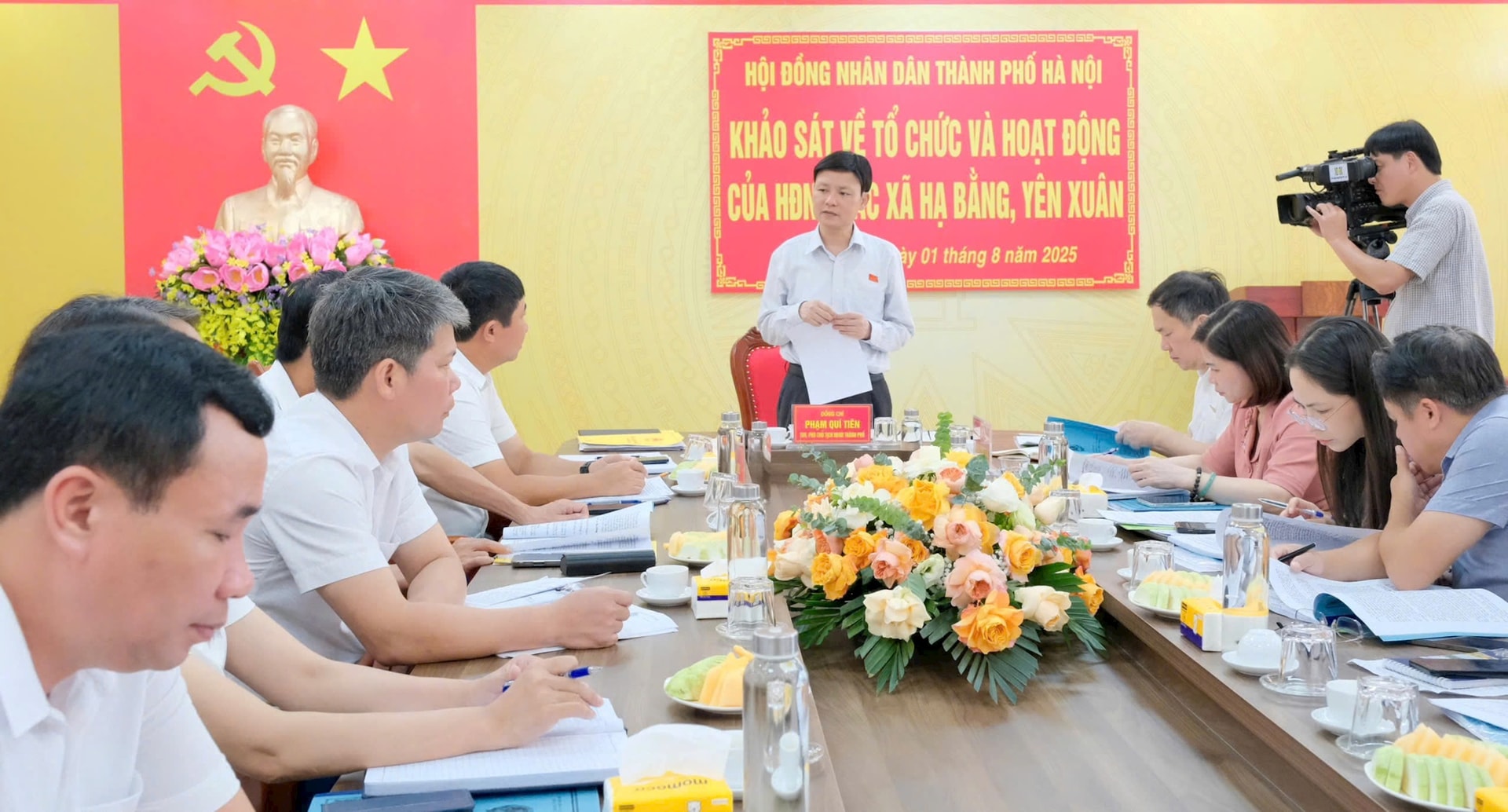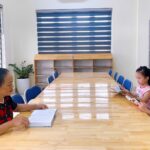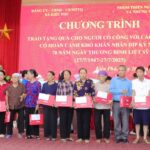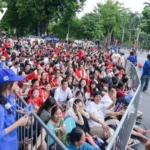On August 1, the inspection delegation from the Standing Committee of the Hanoi People’s Council, led by Vice Chairman Phạm Quí Tiên, worked with Yên Xuân and Hạ Bằng communes regarding the organization and operations of their local People’s Councils.
According to the report from Hạ Bằng Commune’s People’s Council, since implementing the two-tier local government model, the council has successfully organized key sessions. The first session passed resolutions on organizational structure, personnel for council committees, establishment of specialized agencies under the People’s Committee, and the plan for regular sessions in 2025. The second session approved resolutions on socio-economic development, budget estimates, working regulations, supervision plans, and the formation of specialized inspection teams, providing a legal foundation for local government operations.
To effectively represent voters and residents, the commune’s People’s Council discussed and proposed solutions for existing issues, such as delays in land allocation for services, site clearance, and agricultural land use certificates, demonstrating accountability. Additionally, Hạ Bằng’s People’s Council established a specialized inspection team and developed a supervision plan for the latter half of 2025.
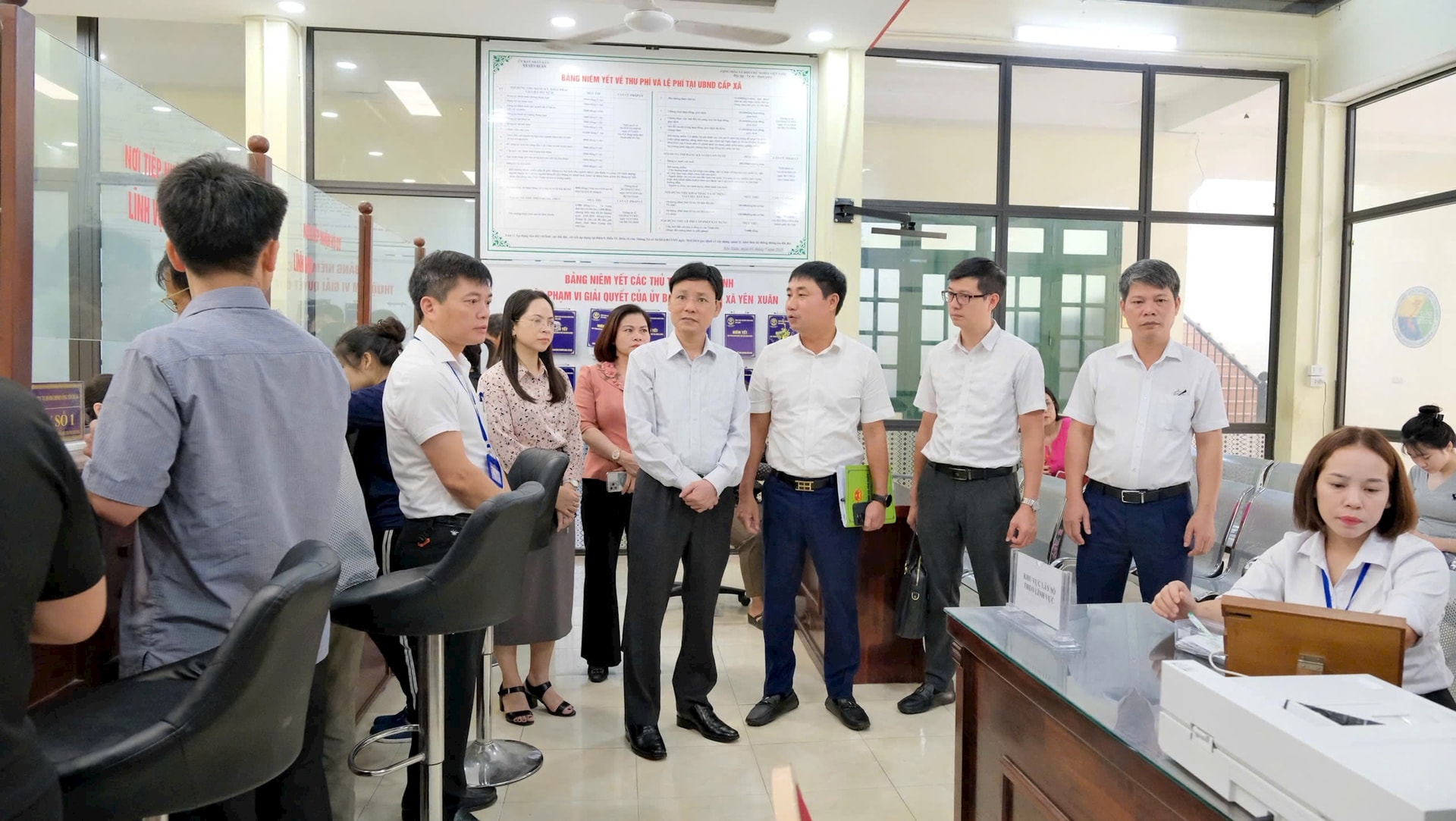
Yên Xuân Commune’s People’s Council reported successfully holding two key sessions to pass resolutions on personnel, council committees, specialized agencies, and the 2025 session plan. Resolutions on socio-economic development, budget, working regulations, and supervision were approved with high consensus.
Council delegates actively discussed and proposed practical solutions to meet 2025 socio-economic targets, reflecting their representative role. The council also formed a specialized inspection team and planned supervision for the latter half of 2025.
Both communes reported challenges, including inexperienced delegates with limited capacity, particularly in supervising new specialized fields. Delays persist in resolving land allocation, clearance, and certification issues. Infrastructure (meeting rooms, IT equipment) also falls short of operational needs.
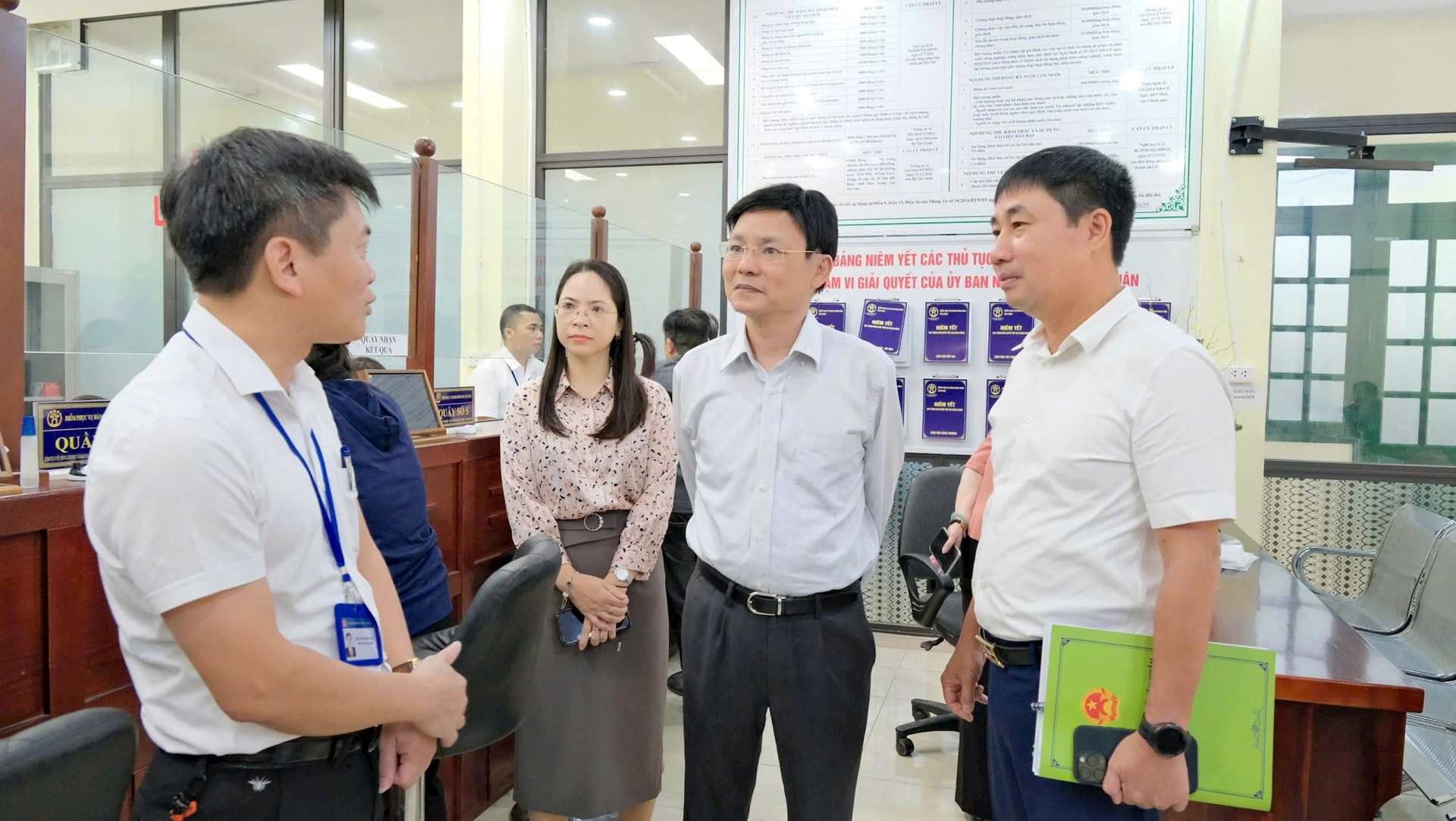
The delegation addressed the communes’ recommendations on decentralization, staffing, delegate training, and infrastructure. They urged closer coordination with Hanoi’s Public Administrative Service Center for specialized support, clarifying policy payments, and resolving delays in health and education projects.
In closing, Vice Chairman Phạm Quí Tiên commended both communes for implementing the

